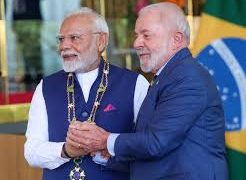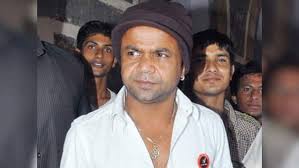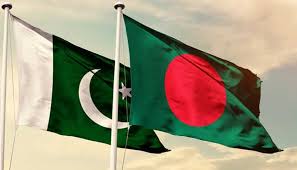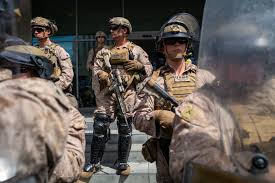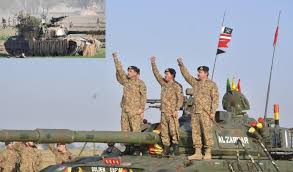The world is celebrating ‘International Women’s Day’ on March 8th today to accentuate the need for provision of women’s due rights.
Multinational organizations and tech giants including Google and Facebook also issued new logos to commemorate International Women’s Day. Facebook launched a special logo to celebrate diversity and inclusive approach on International Women’s Day.
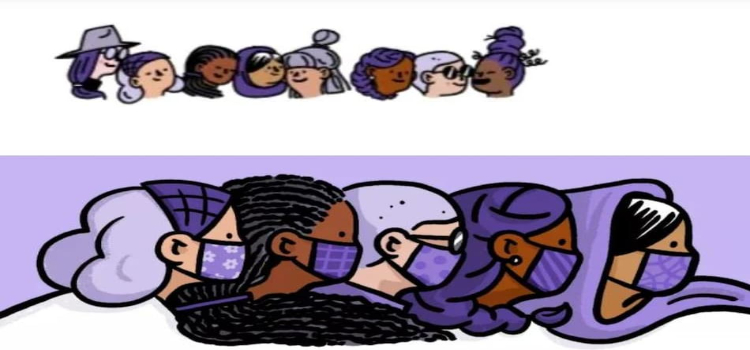
International Women’s Day – A Brief History
The first Women’s Day observed in history was on February 28th 1909 in New York City under the title National Woman’s Day. It was organized by Socialist Party of America on the suggestion of activist Theresa Malkiel.
Inspired by American socialists, German delegates including Clara Zetkin, Käte Duncker, Paula Thiede were the first to propose an annual Women’s Day in official capacity.
First International Women’s Day (IDW) was celebrated on March 19th 1911 in Austria, Denmark, German and Switzerland.
In Russia, first International Women’s Day was observed in 1913. In London, there was a march from Bow to Trafalgar Square in support of women’s suffrage on March 8, 1914. Activist Sylvia Pankhurst was arrested in front of Charing Cross station on her way to speak in Trafalgar Square.
United Nations And International Women’s Day
United Nations (UN) first celebrated International Women’s Day in 1975 – the year itself was declared ‘International Women’s Year’ by the UN. In 1977, UNGA called on member states to officially proclaim March 8th as International Women’s Day.
This year, International Women’s Day is being celebrated under the theme ‘Women in leadership: Achieving an equal future in a COVID-19 world’.
Pandemic recovery is our chance to leave behind generations of exclusion & inequalities.
It is time to build an equal future.
This is a job for everyone – and for the benefit of everyone.— @antonioguterres on Monday's #InternationalWomensDay. https://t.co/Xet4mN6JTq pic.twitter.com/uIXk6Fkrme
— United Nations (@UN) March 8, 2021
The theme celebrates the tremendous efforts by women and girls around the world in shaping a more equal future and recovery from the COVID-19 pandemic. Women stand at the front lines of the COVID-19 crisis, as health care workers, caregivers, innovators, community organizers and as some of the most exemplary and effective national leaders in combating the pandemic.
The crisis has highlighted both the centrality of their contributions and the disproportionate burdens that women carry.
Women leaders and women’s organizations have demonstrated their skills, knowledge and networks to effectively lead in COVID-19 response and recovery efforts. Today there is more acceptance than ever before that women bring different experiences, perspectives and skills to the table, and make irreplaceable contributions to decisions, policies and laws that work better for all.
UN Themes Over The Years
1996 – Celebrating the Past, Planning for the Future
1997 – Women and the Peace Table
1998 – Women and Human Rights
1999 – World Free of Violence Against Women
2000 – Women Uniting for Peace
2001 – Women and Peace: Women Managing Conflicts
2002 – Afghan Women Today: Realities and Opportunities
2003 – Gender Equality and the Millennium Development Goals
2004 – Women and HIV/AIDS
2005 – Gender Equality Beyond 2005; Building a More Secure Future
2006 – Women in Decision-making
2007 – Ending Impunity for Violence Against Women and Girls
2008 – Investing in Women and Girls
2009 – Women and Men United to End Violence Against Women and Girls
2010 – Equal Rights, Equal Opportunities: Progress for All
2011 – Equal Access to Education, Training, & Science & Technology: Pathway to Decent Work for women
2012 – Empower Rural Women, End Poverty and Hunger
2013 – A Promise is a Promise: Time for Action to End Violence Against Women
2014 – Equality for Women is Progress for All
2015 – Empowering Women, Empowering Humanity: Picture it!
2016 – Planet 50-50 by 2030: Step It Up for Gender Equality
2017 – Women in the Changing World of Work: Planet 50-50 by 2030
2018 – Time is Now: Rural and urban activists transforming women’s lives
2019 – Think Equal, Build Smart, Innovate for Change
2020 – “I am Generation Equality: Realizing Women’s Rights”
2021 – Women in leadership: Achieving an equal future in a COVID-19 world
International Women’s Day Around The World
International Women’s Day is a time to reflect on progress made, to call for change and to celebrate acts of courage and determination by ordinary women, who have played an extraordinary role in the history of their countries and communities.
The day is an official holiday in Afghanistan, Angola, Armenia, Azerbaijan, Belarus, Burkina Faso, Cambodia, China (for women only), Cuba, Georgia, Guinea-Bissau, Eritrea, Kazakhstan, Kyrgyzstan, Laos, Madagascar (for women only), Moldova, Mongolia, Nepal, Russia, Tajikistan, Turkmenistan, Uganda, Ukraine, Uzbekistan, Vietnam, and Zambia.
In some countries, such as Australia, Cameroon, Croatia, Romania, Bosnia and Herzegovina, Bulgaria and Chile, the day is not a public holiday, but is widely observed nonetheless.
International Women’s Day Over The Decade
2010 – On the occasion of 2010 International Women’s Day the International Committee of the Red Cross (ICRC) drew attention to the hardships displaced women endure. The displacement of populations is one of the gravest consequences of today’s armed conflicts.
2011 – Though the celebration in the West was low-key, events took place in more than 100 countries on March 8, 2011, to commemorate the 100th anniversary of International Women’s Day. In the United States, President Barack Obama proclaimed March 2011 to be “Women’s History Month”, calling Americans to mark IWD by reflecting on “the extraordinary accomplishments of women” in shaping the country’s history.
2012 – On the occasion of International Women’s Day 2012, the ICRC called for more action to help the mothers and wives of people who have gone missing during armed conflict. The vast majority of people who go missing in connection with conflict are men.
2013 – The International Committee of the Red Cross (ICRC) drew attention to the plight of women in prison.
2014 – American singer Beyoncé also posted an International Women’s Day video to her YouTube account. Throughout the video, her song “Flawless” plays, which includes a portion of the “We Should All Be Feminists” speech given by author Chimamanda Ngozi Adichie
2015 – Governments and activists around the world commemorated the 20th anniversary year of the Beijing Declaration and Platform for Action, an historic roadmap that set the agenda for realizing women’s rights.
2017 – In a message in support of International Women’s Day, the UN Secretary-General António Guterres commented on how women’s rights were being “reduced, restricted and reversed”. With men still in leadership positions and a widening economic gender gap, he called for change “by empowering women at all levels, enabling their voices to be heard and giving them control over their own lives and over the future of our world”
2019 – The UN theme for International Women’s Day was: ‘Think equal, build smart, innovate for change’. The focus of the theme was on innovative ways in which to advance gender equality and the empowerment of women, particularly in the areas of social protection systems, access to public services and sustainable infrastructure.
2020 – The UN theme for International Women’s Day was: ‘I am Generation Equality’: Realizing Women’s Rights’. Despite the COVID-19 pandemic, street marches occurred in London, Paris, Madrid, Brussels, Moscow and other European cities.
2021 – The 2021 UN theme for International Women’s Day is “Women in leadership: Achieving an equal future in a COVID-19 world”, highlighting the impact that girls and women worldwide had as health care workers, caregivers, innovators and community organizers during the COVID-19 pandemic.
International Women’s Day in Pakistan
In Pakistan International Women’s Day is marked as ‘Aurat March’ across various cities, with major events being held in Karachi, Lahore and Islamabad. The march is held every year and is attended by academia, intellectuals, artists, civil society members along with both women and men from various walks of life in order to underscore the need for women empowerment in modern times.
Read More: COAS Bajwa reiterates the need for respect, gratitude for Pakistani women
The primary objective of Aurat Azadi March is to ensure economic and social justice for women, provision of labor rights, recognition of women’s input to the ‘care economy’ as unpaid labor, and provision of maternity leaves and day care centers to ensure women’s inclusion in the labor force.
Furthermore, Aurat Azadi March highlights the need to ensure essential measures against harassment and other crimes targeting women. It demands strict implementation of ‘Sexual Harassment Against Women in the Workplace Act 2010’ in this regards.
Each year, the march is marked by participants chanting slogans and holding placards against misogyny, and in support of women empowerment.








